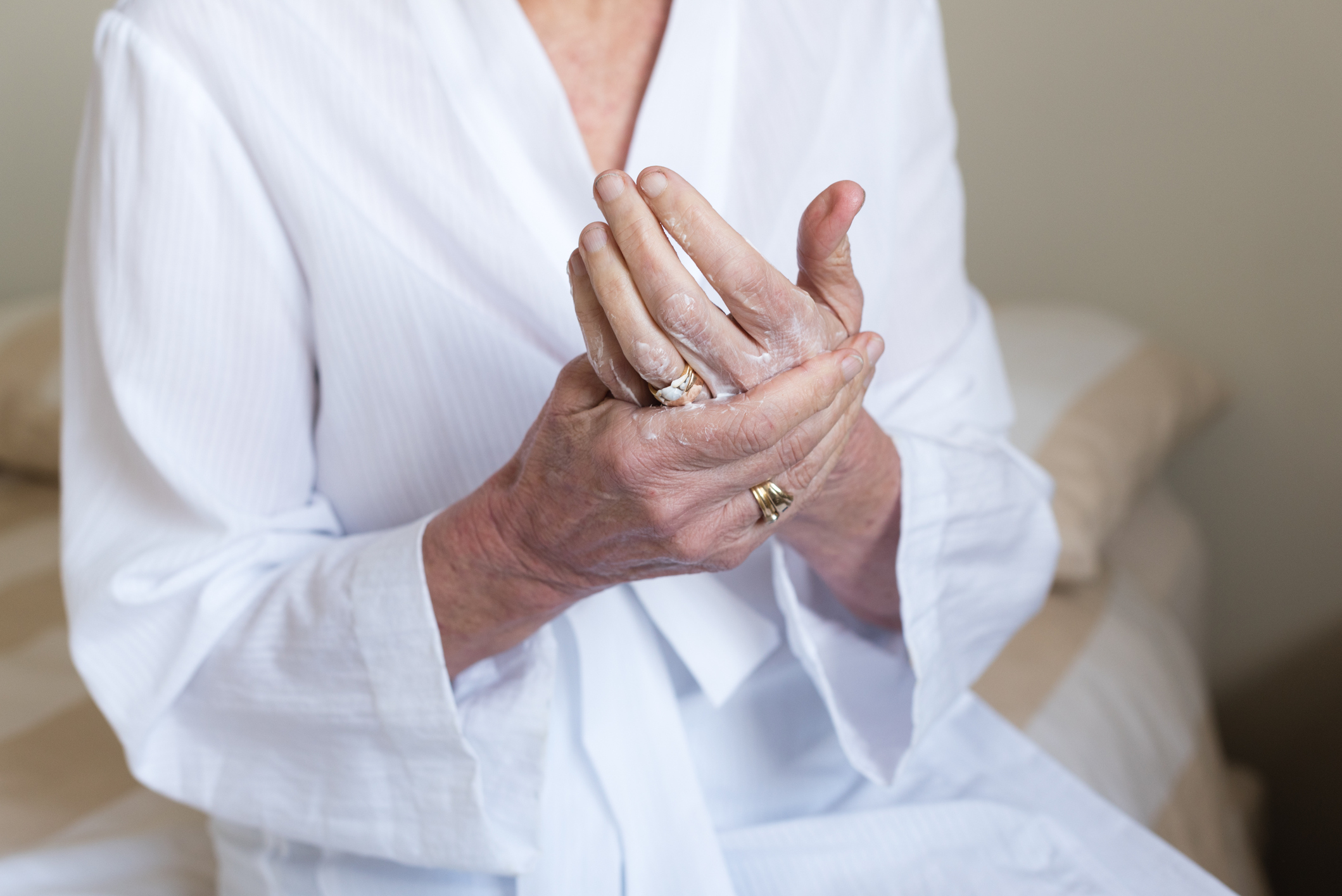Like millions of people worldwide, many individuals are staying home, isolating themselves and practicing hand and household hygiene in an effort to flatten the curve in the spread of COVID-19 while researchers work to develop a vaccine. Very likely, all this vigorous hand-washing (which is vitally important), has taken a toll on your skin. Elderly adults especially, with thinning of the dermis, can develop raw, irritated skin and cracks that can lead to infection.
With extra time at home to clean, read, cook from scratch and practice self-care, it’s also important to include moisturizing hands as part of a health routine. When hands are raw and painful from washing and sanitizing, people will be less likely to wash as frequently. According to a recent Washington Post report, if the skin is breaking down, soap and alcohol disinfectants don’t work as well.
Any break in the skin barrier can also allow germs and microbes to enter the body which can lead to staph infections or strep. After washing hands, use a thick emollient moisturizer or ointment that is free from alcohol, perfumes or dyes which can irritate and dry out skin further. An inexpensive drugstore moisturizer like Aquaphor, CeraVe, Cetaphil or Vaseline works well to lock in moisture; but keep it to yourself and don’t share tubes that can spread germs and bacteria.
Keeping nails trimmed short and hands in good condition in addition to washing thoroughly for 20 seconds before eating, after using the bathroom and after sneezing (into a tissue), coughing (into your elbow) or blowing your nose can help prevent the spread of illness and offer individuals protection.
For more information about how soap works to reduce infection and slow the rate of the Coronavirus pandemic, follow this link to a recent New York Times article; Why Soap Works.






Add Your Voice
0 Comments
Join the Discussion